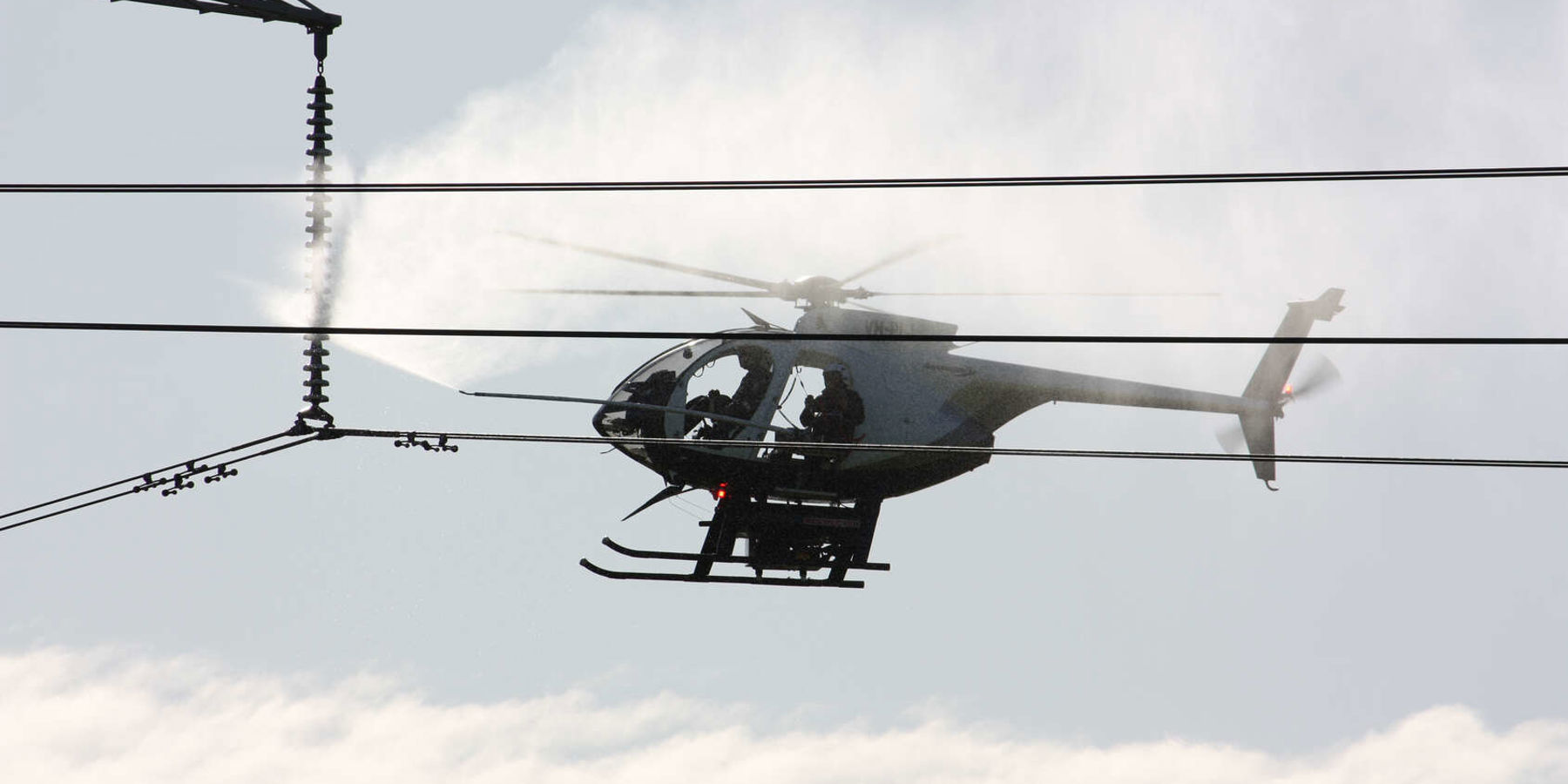Western Power plans to treat 12,732 insulators by helicopter on long power lines located in multiple regional locations to improve network resilience for those communities.
Part of Western Power’s ongoing maintenance program of the distribution network, the works include live line washing and siliconing of insulators and will be undertaken over the next nine months.
Assets to be treated are situated in the City of Greater Geraldton, and the Shires of Irwin, Mingenew, Broomehill-Tambellup, Gnowangerup, Jerramungup, Katanning, Kent, Lake Grace, Kent, and Ravensthorpe.
Western Power has engaged airborne electrical services specialists Aeropower to carry out the live line washing and siliconing, following a successful trial undertaken last year and rollout of the first round earlier this year.
Washing and siliconing helps prevent network damage by reducing the risk of pole top fires, which can occur during light drizzling rain or misty damp conditions when a combination of recent dust and pollution builds up to creates paths or ‘tracks’ on the insulators, enabling electricity to jump across.
This tracking electricity can heat elements of the pole infrastructure to a point where they smoulder and burn, leading to faults and resulting power outages.
Executive Manager Asset Operations Zane Christmas said the washing and siliconing program could help in areas where pollution, such as sea salt in coastal areas or dust during harvest periods, can impact infrastructure.
“We have a comprehensive program in place to mitigate the risk of pole top fires including insulator replacements, as well as high-pressure washing of insulators, and siliconing,” Mr Christmas said.
“Now that we’ve established a safe and efficient way of washing live distribution lines using helicopters, we’ve engaged Aeropower to treat more than 12,700 insulators across the South West Interconnected Network (SWIN),” he said.
“We are planning to treat a total of 12,732 poles across 11 local Shires and Cities in the regions.
“The work is undertaken in two phases. In phase one, insulators are sprayed with demineralised water, and in phase two the helicopter returns to apply the silicone.”
Mr Christmas said the works were expected to be completed by June next year.
“We’ll be in touch with communities, so they are aware of the works being undertaken in their area,” he said.
This maintenance work is in addition to the ongoing transmission line patrols which are regularly undertaken across the SWIN.
